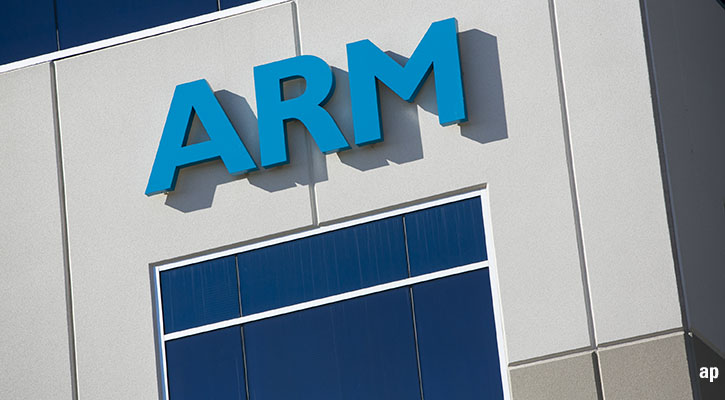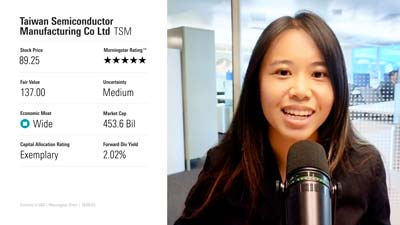Kate Lin: Welcome to Morningstar. Semiconductor chips have once again come into focus as tensions in the Taiwan strait raised questions about China's strategy to achieve self-sufficiency in this critical technology. As a workaround against economic sanctions imposed by the U.S. how will China produce these chips that are at present only supplied by Taiwan's Taiwan Semiconductor Manufacturing Company, TSMC (TSM) and a few others. We are talking to Phelix Lee, equity analyst at Morningstar, today.
Hi, Phelix. Mainland and Taiwan chip stocks trade at opposite directions following the U.S. politician visit to the island. Why is that?
Phelix Lee: Hi, Kate. So, the Taiwan chip stocks are a bit weaker than the mainland China chip stocks mainly because of the geopolitical situation. But aside from the geopolitical situation, the fundamentals that all these foundries face, no matter they are in Taiwan, China or other parts of the world, are still the same. We think the opposite direction in terms of a stock movement is mainly because of some of the risk management measures taken by investors in order to hedge the geopolitical risk regarding Taiwan, because once or if a military incursion occurs in Taiwan, then it is very likely that Taiwan chip production would be disrupted which would prompt orders to be switched to China.
Lin: So, is it also safe to assume that the mainland will pump more resources into the chip supply chain? And does it make sense to look at China's Semiconductor Manufacturing International Corp, SMIC (00981) right now?
Lee: Mainland China has been pumping a lot of resources into the chip supply chain. There are a few initiatives, with the most popular one to be Made in China 2025, but we don't see a very material acceleration of these resources pumping into the supply chain. It's been several tens of billions in the past year for each year, and we think this figure to be somewhat stable in the next few years.
For SMIC, the company is trading at 15% below our fair value estimate, so which is borderline 3-Star and 4-Star at the moment. We think the company is borderline fairly valued because of the heightened geopolitical risk such as equipment embargoes as well as other trade restrictions that are unique to SMIC.
Lin: On the other hand, while TSMC's valuation remains very attractive, is there a scenario where the geopolitical situation could result in a downgrade?
Lee: So, TSMC's valuation in the Morningstar methodology has a base case which we didn't assume the occurrence of a military incursion in Taiwan. What we are focusing on now is more of these supply chain disruptions that have been happening since 2020. Right now, there are talks of the CHIPS Act potentially barring foreign investments into sensitive countries as well as some shipments that could be restricted into China. These supply chain disruptions as well as the recent demand downside are more pressing issues to any possible downgrades for TSMC.
Lin: Right. Thank you so much, Phelix. For Morningstar, I'm Kate Lin.












.png)





.jpg)





